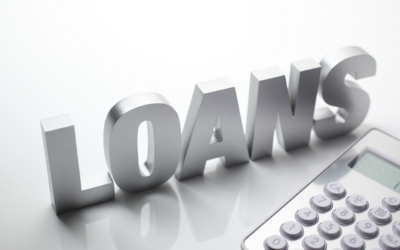Investing in rental properties is probably one of the best ways to diversify your commercial or investment portfolio. The commercial real estate sector pays off very well, and most investors continue investing and expanding their rental properties portfolio because it is very lucrative in many aspects. If you’ve made such a decision too, then this article is for you. When you invest in rental properties, one of the first things you would want to consider is financing.
You can get bank loans for your rental property investment or work with a commercial private money lender. Which one is best for you? While banks are a good option for many investors, remember that banks might not always be the best bet for a person who is just starting his investment journey.
The reasons are many. Slower closing paces and a limited amount of loan, along with strict lending requirements, are just a few to name. Many commercial real estate investors turn to hard money loans to fund their rental properties. This blog is an overview of how hard money loans work for rental properties and different types of hard money loans that you can avail of for your rental property. Getting a hard money loan to buy rental property comes with its benefits you can encash upon.
Although some investors might disapprove of taking a hard money loan, especially for beginner investors, it is still a widely available financing option. Some reasons why one might be interested in taking out hard money rental property loans are:
#1 – Hard money loans do not require the borrower to fulfill a strict list of lending requirements
Banks and other traditional lending institutions generally have a set of strict lending requirements. They only approve loans to a specific list of investors who can prove they are worthy in terms of their credit scores. Thus, if you have a poor credit score, chasing a bank for your hard money loan will waste your energy and time, but you’ll also get hopeless about the whole financing for your property.
On the other hand, hard money lenders consider the value of the property instead of solely focusing on the borrower’s credit score. Thus, if you know a property that has a good value and can present it to your hard money lender that investing in this property is going to yield you good returns, your loan request has excellent chances of being approved.
#2 – The documentation for getting your loan is huge when you work with banks
Banks require a lot of paperwork, and they need to see your financial position thoroughly before they even consider your loan request. It means that you’ll submit your bank statements and other tax forms for them to believe in your loan repaying abilities. Thus, if you are a freelancer or a self-employed person who cannot demonstrate a stable income flow pattern, your loan application will be rejected by banks more often than not.
On the contrary, when working with a hard money lender, the paperwork is very less. Hard money lenders base their decision on lending you the money or not based on the property value and other tangents like the projected income statements of your property. , hard money lenders are not very concerned with how you’ve done financially in the past. If you can show them that your property is capable of generating income flow for you and that you’ll be able to fully respect your loan obligations, they’ll approve your loan.
#3 – Hard money lenders take less closing time
Banks take a longer time to process your loan request as they deeply look into the details of your request along with your credit score, bank statements, pay stubs, tax returns, and so on. They take a significant amount of time before they’ll even let you know if they can or cannot approve your loan request.
This large time window might work in your bad interests as the property that you’re looking to buy can be bought by another potential investor, and you’ll still leave waiting to know the status of loan application approval. Hard money lenders get back to you very soon as their requirements are comparatively much narrow.
Thus, if time is of the essence in your rental property purchase that you wish to make, trying your luck with the hard money lenders is your best option.
How do Rental Property Hard Money Lenders work?
The hard money lenders who provide hard money loans to buy rental property majorly look at the property value at the question. To be more specific, they are interested in knowing the ARV or After Repair Value of your property.
The ARV is the property value, which is determined by considering the market value of a property after repairs and renovations are made to the property, to make it more appealing for tenants or to increase the occupancy rates of the property, which will, in turn, increase the property value.
When you are buying a rental property, you want to make some minor or major rehab or repairs to the property. Thus, your hard money lenders will look at the property value after making it appealing and ready-to-move-in for your tenants.
Different hard money lenders have different criteria that they want your property to fulfill. Typically, hard money lenders will approve your hard money loan for the rental property once they have a convincing ARV property value. Additionally, if you can present to your hard money lenders the projected statements which reflect the project cash flows of the property, and can convince them of your loan repaying abilities, your loan will be easily processed.
Another way to ensure that your loan request gets approved is by getting a referral by a friend or family. Hard money lenders generally work with a network of agents, brokers, and investors. If you can get hold of any such references, your hard money lender will trust you much easier, and they’ll favor your loan approval.
Furthermore, depending on the property value and the terms of the loan, hard money lenders generally offer loans covering up to 80% of the property value. While choosing a hard money loan, ensure that you fully understand all the terms and conditions associated with your loans, including term periods, rates of interest, prepayment penalties, and any other type of expenses you will have to incur to get your loan processed.
There are no standard guidelines that act as a yardstick to know how hard money loans work, and it is highly subjective on the lender you choose and the region of your rental property investment. Thus, having an obvious picture of what you’re getting yourself involved with is of utmost importance.
Different types of hard money loans for Rental Properties
There are different types of hard money loans that you can avail of to fund your rental properties. Each type of hard money loan is designed to fit different kinds of financing needs like purchase, cash-out, repairs and renovations, refinance, and so on. Here are some major types of hard money loans for Rental Properties:
#1 – Commercial Bridge loans for Rental Properties or Rental 2+1 Hard money loans
The Rental 2+1 Hard money loans are a type of commercial bridge loan for rental properties, which is used to bridge the financial gap between a short term financing option and a longer-term financing option. These loans are often taken to make major repairs, rehab, or renovations before it is ready to be occupied by the tenants. Such loans have shorter terms ranging from a year to two years and carry higher rates of interest than other traditional bank loans.
#2 – Rental 30 Hard Money Loans
The Rental 30 Hard Money Loans are the perfect form of hard money financing for investors looking to build a stable and consistent portfolio of rental properties. They have fast closings and carry lower rates of interest, ranging from 5% to 8%. However, these loans generally cover only 75% of the LTV, and the investor must cover the rest 25%.
#3 – Build2Rent Loans
If you are an investor who is considering to build a property to rent it out, this type of loan option might be the most viable one. These are interest-only loans, having loan terms ranging from 13 months to 20 months. They carry fixed rates of loans throughout the loan tenure. Most investors who purchase lands and want to construct a building to rent use these loans and then upgrade to a Rental 30 Hard Money Loan to make further additions, repairs, rehabs, or renovations to the same property.





